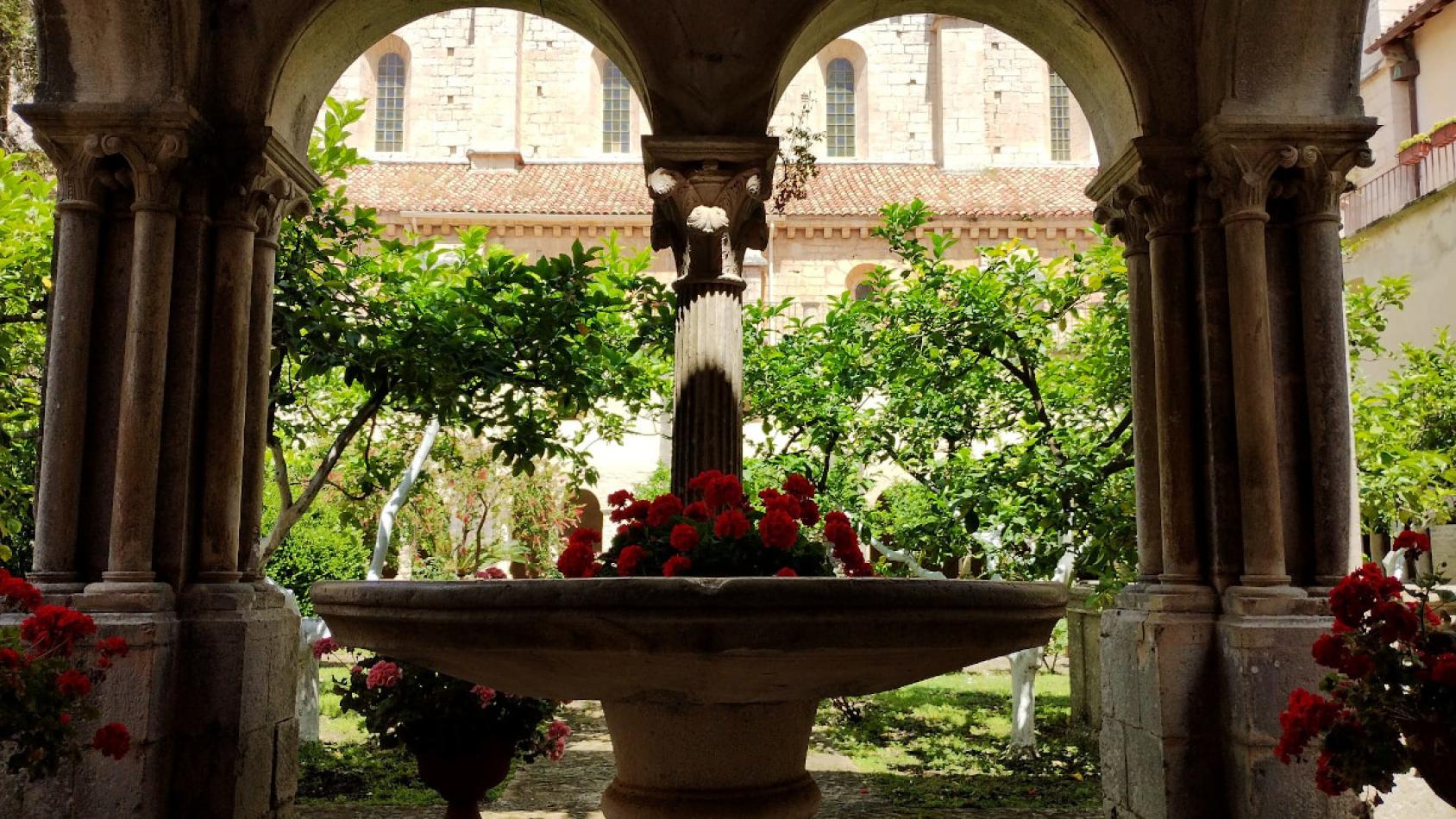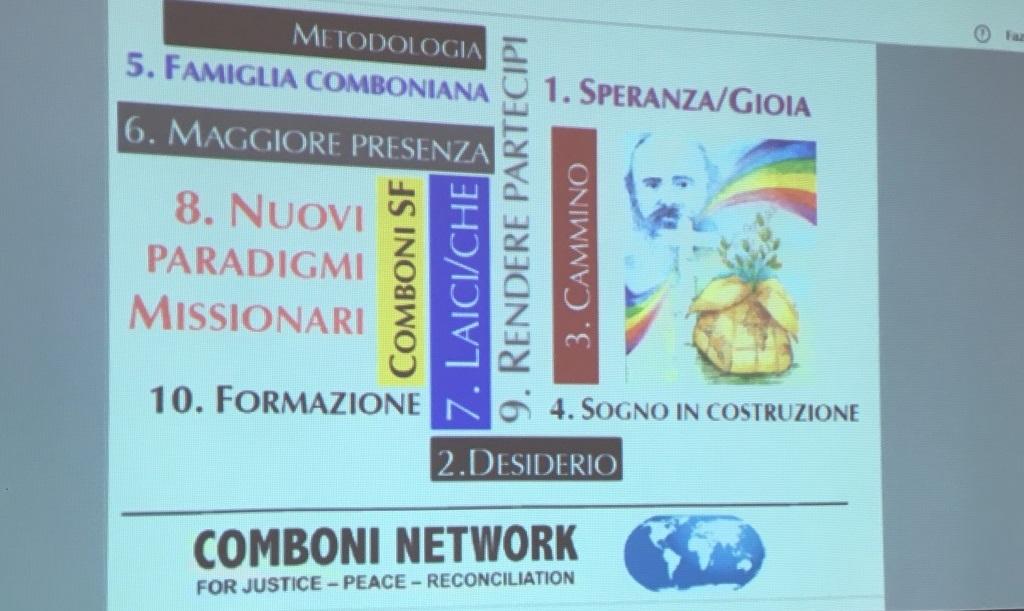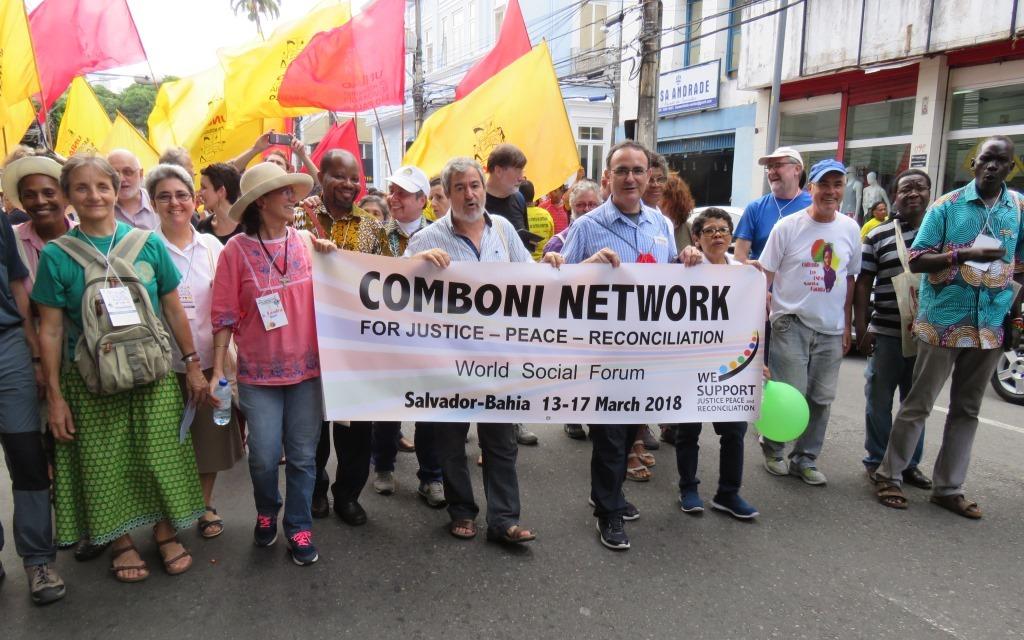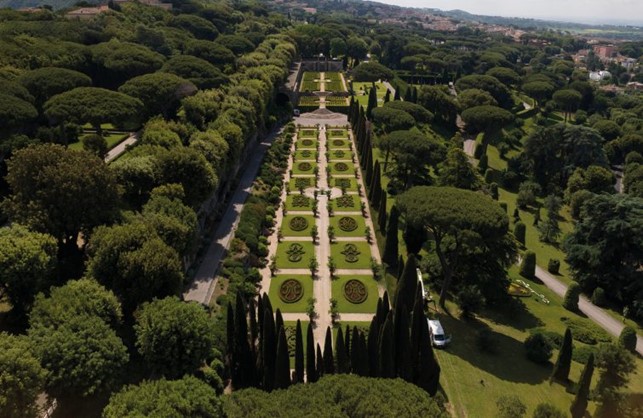Daniel Comboni
Comboni Missionaries
Institutional area
Other links
Newsletter
Wednesday, July 9, 2025
The Vatican has announced that on Thursday, July 3, the Mass for “The Care of Creation” will be released, and added to the Roman Missal under Masses “for various needs. That morning at 10 am in Rome, a press conference will be held at the Holy See Press Office, Via della Conciliazione 54, to present the new formulary of the Missa “pro custodia creationis”, which will be added to the Missae “pro variis necessitatibus vel ad diversa” of the Roman Missal.
The speakers will be His Eminence Cardinal Michael Czerny, S.J., prefect of the Dicastery for Promoting Integral Human Development, and Archbishop Vittorio Francesco Viola, O.F.M., secretary of the Dicastery for Divine Worship and the Discipline of the Sacraments. The press conference will be livestreamed in the original language on the Vatican News YouTube channel.
Vatican Hopes New Mass Prayers Will Renew Care for God’s Creation
The Vatican on Thursday presented new Mass prayers and biblical readings to be used to support the Church’s appreciation for God’s creation. The “Mass for the Care of Creation,” inspired by Pope Francis’ environmental encyclical Laudato Si’, has prayers and Mass readings designed “to ask God for the ability to care for creation,” Cardinal Michael Czerny, SJ, said at a July 3 presentation.
“With this Mass, the Church is offering liturgical, spiritual, and communal support for the care we all need to exercise of nature, our common home. Such service is indeed a great act of faith, hope, and charity,” the cardinal added. The “Mass for the Care of Creation” is part of the Catholic Church’s Masses and Prayers for Various Needs and Occasions. It can be celebrated on a weekday when other liturgical celebrations do not take precedence.
The Vatican published the “formulary” of the Mass, which includes options for biblical readings and the formulas of prayers recited by the priest: the entrance antiphon, collect, prayer over the offerings, Communion antiphon, and prayer after Communion. Czerny said Pope Leo XIV will celebrate a private Mass using the new prayer formulas in Castel Gandolfo on July 9. The Mass will be for employees of the Borgo Laudato Si’ initiative, which aims to put into practice the principles for integral development outlined in Francis’ encyclical Laudato Si’.
The formulary of the “Mass of Care for Creation” is part of a group of Masses that can be said for various civil needs, such as for the country, for the blessing of human labor, for planting and for harvest time, in time of war, and after a natural disaster. According to Bishop Vittorio Francesco Viola, OFM, secretary of the Dicastery for Divine Worship and the Discipline of the Sacraments, bishops’ conferences can indicate a day for the Mass to be celebrated if they wish.
Viola also noted that “the theme of creation is already present in the liturgy,” but the Mass for the Care of Creation helps emphasize what Pope Francis wrote in paragraph 66 of Laudato Si’, that “human life is grounded in three fundamental and closely intertwined relationships: with God, with our neighbor, and with the earth itself.”
The Vatican’s liturgy dicastery was responsible for the new Mass formulary, requested by Francis and approved by Leo, but Czerny said the Dicastery for Promoting Integral Human Development, the Dicastery for the Doctrine of the Faith, and the Dicastery for Promoting Christian Unity were also happy to collaborate on the project.
“Sacred Scripture exhorts humankind to contemplate the mystery of creation and to give endless thanks to the Holy Trinity for this sign of his benevolence, which, like a precious treasure, is to be loved, cherished, and simultaneously advanced as well as handed down from generation to generation,” the divine worship dicastery’s decree states. “At this time it is evident that the work of creation is seriously threatened because of the irresponsible use and abuse of the goods God has endowed to our care,” it continues. “This is why it is considered appropriate to add a Mass formulary ‘pro custodia creationis’” to the Roman Missal.
Hannah Brockhaus - ACI Africa
Mass for the Care of Creation
“Our world is God’s first great act of love for us”
“It is to God that we owe the greatness, beauty and wonder of this gift. This somewhat recaptures the contemplative gaze that found its loftiest expression in Francis of Assisi’s Canticle of the Sun 800 years ago”, the theologian says in this interview with SIR.
On the 10th anniversary of the publication of Pope Francis’ encyclical Laudato Si’, Leo XIV has promulgated the Decree for the Missa “pro custodia creationis” (“Mass for the Care of Creation”). This new formulary will be added to the Missea “Pro variis necessitatibus vel ad diversa” (“For various needs and occasions”) of the Roman Missal.
Leo XIV will celebrate the first Mass for the care of creation using the new liturgical formulary on 9 July at ‘Borgo Laudato Si’, during his vacation at Castel Gandolfo. A verse from the Psalms is chosen as the Entrance Antiphon: “The heavens tell of the glory of God, / the work of his hands announces the firmament”. SIR asked theologian Simone Morandini to comment on the new Mass for the Care of Creation.
Do you view the Mass for the Care of Creation as an important step?
The approval of this votive Mass for Creation is a beautiful sign, particularly as 2025 marks the tenth anniversary of the publication of Pope Francis’s encyclical Laudato Si’ that called on the Catholic Church to commit to a profound reflection on the care of Creation, grounded in sociological, environmental ethical considerations, from a theological perspective, of spiritual reflection and celebration.
Coincidentally, only two months after the encyclical was published, Pope Francis endorsed the proposal originally launched by the Patriarchate of Constantinople and embraced at an ecumenical level to hold a Day of Prayer for the Care of Our Common Home and Creation on 1 September. Pope Francis thereby offered his support to address these issues ecumenically. Therefore, it is highly significant that ten years later, a votive Mass celebrating the Triune Creator and Creation accomplished in Jesus Christ has been included in the Catholic Church’s calendar of celebrations. Alongside the numerous references to Creation already found in other celebrations, this new addition provides a specific moment of celebration that Communities can adopt at the most appropriate times, dedicated precisely to the reality of the Creator and His work of Creation. This is the first aspect to bear in mind.
Alongside an ethic of care for our Common Home, it is important to emphasise the need to celebrate God the Creator, who has entrusted us with this world in need of care.
John Paul II’s message for the 1990 World Day of Peace, “Peace with God the Creator: Peace with All Creation”, is also a source of inspiration.
Indeed, it is. It’s important to remember all these messages. Concern for the care of creation reached a high point with Laudato Si’, to which Pope Francis dedicated an encyclical, but this concern did not begin with Laudato Si’.
The message of John Paul II for World Peace Day in 1990 is an important milestone, as is the resumption of this theme by Pope Benedict in his 2010 World Peace Day message, “If you want to cultivate peace, protect creation.” Within Catholic teaching, a line can be traced connecting the idea of the Creator as the source of the gift of the world we inhabit. And within this phase, Pope Leo deemed it opportune to add this extremely significant contribution. Ecumenical reflection on this issue began in the 1970s, before John Paul II, ultimately leading to the proposal to establish the Day of Creation and the Season of Creation.
In Sacred Scripture we find multiple passages referring to the work of God the Creation and Creation as a sign of His love…
A variety of Biblical readings can be proposed for the votive Mass as both the Old and New Testaments offer important insights. What unites them is the idea that this world is not our creation, but a gift that predates us: the first great gift of the Creator and the first great sacrament of His love. The New Testament, of course, adds the qualifying reference to the mediation of Jesus Christ. Everything was created through him; he is the Word, the Logos, through whom everything that exists came into being. Pope Francis effectively explains this in Laudato Si’, stating that Creation is ultimately a reality of love, regardless of the dialogue without faith, or philosophical interpretations. What the great biblical texts, from Genesis to the books of the Prophets and Paul’s letters, hand down to us is that Creation is the first great manifestation of God’s love for his creatures. It is the beginning of a history of salvation; the act of creation itself is imbued with an original blessing.
This is essentially the notion I sought to convey in one of my previous publications, “Credo in Dio, fonte di vita. Una Fede Ecologica”, published by Edizioni Dehoniane. The idea is that the Symbol of Nicaea, which is marking its 1,700th anniversary this year, is rooted in this very confession of God’s creative love, the source of life.
This new Mass is important for precisely this reason: Creation is in danger due to various human behaviours. Leo XIV mentions this risk in his first Message for the World Day of Prayer for the Care of Creation.
Clearly, just as with every element of our confession of faith, confessing God as our Creator also has profound practical implications. It invites us to adopt an ethos of respect and care for the world as God’s Creation, His gift of love and legacy for future generations, who are entitled to inhabit it under the same conditions as our own.
Clearly, Pope Leo wished to approve this liturgical text while relaunching it in conjunction with his Message for the World Day of Prayer for the Care of Creation, following in the footsteps of his predecessors, specifically on the 10th anniversary of Pope Francis’ encyclical. Interestingly, the Pope has adopted a theme proposed by an ecumenical committee for 1 September for many years.
In this sense, the approval of the votive Mass for Creation could be seen as an important step in the ecumenical process, as it raises the possibility of the Western Churches celebrating the event of Creation liturgically, either as a feast or a solemnity, as the Orthodox Churches already do. Notably, the Orthodox Churches begin their liturgical year on 1 September. While the West should adopt a different approach, it is interesting to note the harmony between the approval of this votive Mass and this ecumenical dynamic. Some refer to this as the “Assisi process” because several seminars have been held at the ‘Laudato Si’ Citadel’ in Assisi.
Could the introduction of this Mass encourage people to adopt a different approach to the Care of Creation?
Our communities will certainly benefit from understanding the connection between the liturgy and the practical application of Care, embodied in responsible and sustainable lifestyles, community choices and actions, and occasionally even in socio-political engagement. One example of this is the commendable campaign by the National Office for Social Affairs and Labour of the Italian Bishops’ Conference, which promotes the idea of solidarity-based energy communities powered by renewable energy. Reconciliation of the various interrelated aspects is a defining feature of our faith.
While we care for our Common Home to ensure a better future for the next generation, we are also acknowledging that the world, which is in danger and in need of our care, is ultimately a gift from God. It is to Him that we owe the greatness, beauty, and wonder of this gift. This somewhat recaptures the contemplative gaze that found its loftiest expression in Francis of Assisi’s Canticle of the Sun 800 years ago.
Gigliola Alfaro – SIR





